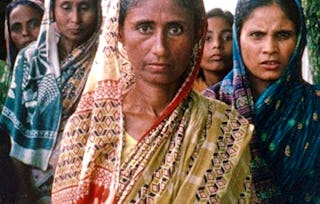Auf der Grundlage der Beiträge verschiedener akademischer Disziplinen, darunter Recht, Psychologie, Soziologie, Geschichte, Erziehungs- und Gesundheitswissenschaften, Wirtschaft und Anthropologie, wird ein interdisziplinärer Ansatz verfolgt, der die Studierenden zu einer Auswahl kritischer Fragen im Zusammenhang mit den Rechten des Kindes führt. Die Teilnehmer erhalten einen Einblick in die Entwicklung dieser speziellen Menschenrechtskategorie sowie in die Entwicklung der Herausforderungen, mit denen Kinder im Laufe der Zeit konfrontiert sind, und in die Bemühungen der Gesellschaft, darauf zu reagieren. Erfolgreiche internationale Strategien und Programme zur Förderung der Kinderrechte werden ebenso beleuchtet wie die Rolle der wichtigsten Akteure in internationalen Organisationen, die in diesem Bereich tätig sind. Dieser offene Online-Kurs bietet einen Überblick über die wichtigsten Merkmale der Menschenrechte von Kindern. Ein zentraler Teil des MOOC besteht aus einer Präsentation der internationalen und regionalen Standards für Kinderrechte und der damit verbundenen internationalen und regionalen gerichtlichen und quasi-gerichtlichen Organe, die deren Umsetzung gewährleisten sollen.

Bald zu Ende: Erwerben Sie mit Coursera Plus für 199 $ (regulär 399 $) das nächste Level. Jetzt sparen.

Die Menschenrechte der Kinder - eine interdisziplinäre Einführung



Dozenten: Roberta Ruggiero
86.080 bereits angemeldet
Bei enthalten
(2,156 Bewertungen)
Kompetenzen, die Sie erwerben
- Kategorie: Bildung und Entwicklung im Kindesalter
- Kategorie: Entwicklung des Kindes
- Kategorie: Kulturelle Vielfalt
- Kategorie: Menschliche Entwicklung
- Kategorie: Familienrecht
- Kategorie: Gesundheit von Kindern
- Kategorie: Internationale Beziehungen
- Kategorie: Forschung
- Kategorie: Soziale Gerechtigkeit
- Kategorie: Kinderfürsorge
- Kategorie: Anthropologie
- Kategorie: Gerichtssysteme
- Kategorie: Juristische Forschung
- Kategorie: Arbeit mit Kindern
- Kategorie: Sozialwissenschaften
Wichtige Details

Zu Ihrem LinkedIn-Profil hinzufügen
7 Aufgaben
Erfahren Sie, wie Mitarbeiter führender Unternehmen gefragte Kompetenzen erwerben.

In diesem Kurs gibt es 7 Module
Das Modul beginnt mit der Darstellung des Hintergrunds, der Ursprünge und der wichtigsten Inhalte der UN-Kinderrechtskonvention (KRK) und liefert Details über die Vorbereitungsarbeiten und den internationalen politischen Kontext, in dem die Konvention verfasst wurde. Der Inhalt der internationalen Menschenrechtsnormen wird anhand der Unterteilung in bürgerliche und politische Rechte einerseits und wirtschaftliche, soziale und kulturelle Rechte andererseits erörtert. Außerdem werden die allgemeinen UN-Menschenrechtsüberwachungsmechanismen vorgestellt, gefolgt von der Präsentation des CRC-Überwachungssystems. Eine Diskussion über die Bedeutung regionaler Menschenrechtsüberwachungssysteme für Kinder in Afrika, Asien und Lateinamerika wird Gegenstand eines speziellen runden Tisches sein. Im Rahmen der Überwachung wird ein besonderes Augenmerk auf die Rolle der Hauptakteure gelegt: Unabhängige nationale Menschenrechtsinstitutionen (INHRIs) für die Rechte des Kindes, Nichtregierungsorganisationen (NGOs) und Kinder.
Das ist alles enthalten
11 Videos1 Lektüre1 Aufgabe
Dieses Modul bietet einen Überblick über die Entwicklung der Kinderrechte vor der Verabschiedung des Übereinkommens der Vereinten Nationen über die Rechte des Kindes. Auf der Grundlage eines chronologischen Ansatzes ist es eine umfassende Sozial- und Kulturgeschichte der Kinderrechte, der Art und Weise, wie sie sich im Laufe der letzten Jahrhunderte entwickelt haben. Dieses Modul baut zwar nicht auf einer strengen Geschichte der diplomatischen Beziehungen auf, bietet aber eine internationale Perspektive auf diese Entwicklung. Es zielt darauf ab, die Vielfalt der Akteure, Netzwerke und Organisationen hervorzuheben, die im Laufe der Zeit an der Verteidigung und Förderung der Kinderrechte beteiligt waren. Außerdem werden entscheidende Momente dieser Geschichte hervorgehoben, wie die Verabschiedung von internationalen Rechtsinstrumenten über die Rechte des Kindes, die beiden Weltkriege usw. Dieses Modul wird jedoch das gängige Verständnis der Geschichte der Kinderrechte in Frage stellen. Anstatt die Geschichte als eine lineare Erfolgsgeschichte zu beschreiben, werden sowohl die Fortschritte als auch die Misserfolge beleuchtet. Auch die Vorstellung, dass die Rechte des Kindes eine Erfindung des 20. Jahrhunderts sind, wird in Frage gestellt. Auf diese Weise wollen wir ein komplexes Verständnis der Geschichte der Kinderrechte und detaillierte Zusammenhänge für die Themen vermitteln, die sie abdecken (z.B. Kinderarbeit, Jugendgerichtsbarkeit usw.) und die später in diesem MOOC untersucht werden
Das ist alles enthalten
7 Videos1 Aufgabe
Das Modul bietet eine allgemeine Einführung in das Gebiet der Kinderrechtsstudien. Es wird die interdisziplinäre Perspektive des Feldes betonen und Denkschulen im Bereich der Kinderrechte vorstellen. Darüber hinaus werden wir die Verbindungen zwischen den Kinderrechten und der Soziologie und Anthropologie der Kindheit aufzeigen und einige Beispiele aus der jüngsten Forschung und Praxis im Bereich der Kinderrechte vorstellen.
Das ist alles enthalten
6 Videos1 Aufgabe
Der Bereich der Jugendgerichtsbarkeit (Juvenile Justice, JJ) oder der auf Kinder, die mit dem Gesetz in Konflikt geraten sind, spezialisierten Justizsysteme ist der Bereich der Kinderrechte, in dem die internationale Gemeinschaft die meisten Gesetze (auf nationaler, regionaler und internationaler Ebene) ausgearbeitet hat. Es ist offensichtlich ein sehr sensibler Bereich, in dem es zahlreiche Verletzungen der Kinderrechte gibt, in dem Gewalt in Institutionen beklagt werden muss und in dem die Reaktion nicht immer kindgerecht ist und die individuelle Entwicklung des Kindes nicht systematisch fördert. Es ist außerdem ein Bereich, in dem der Staat seine Macht ausübt, um auf Straftaten von Kindern zu reagieren, sehr oft durch Freiheitsentzug; und in dem die Einmischung des Staates auch nicht-strafrechtliches Verhalten unterdrückt (Weglaufen, Verstöße gegen Disziplinarvorschriften, Verletzung der Ausgangssperre, ...), wobei all diese Handlungen rechtlich nicht verwerflich wären, wenn sie von einem Erwachsenen begangen würden (Statusdelikt). Und leider ist dieser Bereich der Justizvollzugsanstalten manchmal für die Verletzung der Rechte von Kindern durch die Staaten selbst verantwortlich: in der Phase der Verhaftung, in der Verwaltungshaft, bei der Vollstreckung von Gerichtsurteilen, aber auch in der institutionellen Betreuung. Das Thema Justizvollzug umfasst auch Kinder als Opfer und Zeugen.
Das ist alles enthalten
9 Videos1 Aufgabe
Der Schutz von Kindern ist eine zentrale Säule im Bereich der Kinderrechte und eine Dimension, die zusammen mit Gesundheit und Bildung wahrscheinlich den größten Teil der finanziellen Aufwendungen der Gesellschaft zugunsten von Kindern auf sich zieht. Aufgrund ihres jungen Alters und ihres körperlichen Zustands sind Kinder viel verletzlicher als andere soziale Gruppen und in der Tat erreicht die Viktimisierung von Kindern auf der ganzen Welt erschreckende Ausmaße. In diesem Modul werden wir verschiedene Formen von uralten und neuen Formen der Gewalt gegen Kinder sowie die institutionellen und professionellen Reaktionen auf das Phänomen untersuchen.
Das ist alles enthalten
7 Videos1 Aufgabe
Art. 12 bis 17 und Art. 31 UNCRC werden als "Beteiligungsrechte" betrachtet. Diese Rechte gelten als die "revolutionärsten" unter den Bestimmungen der UN-Kinderrechtskonvention, weil sie traditionelle und symbolische Vorstellungen von Kindheit in Frage stellen. Die Herausforderung besteht jedoch auch darin, in allen Bereichen ein Gleichgewicht zu finden zwischen den strukturellen Anpassungen, die zur Förderung der Beteiligung von Kindern erforderlich sind, und den sich entwickelnden Fähigkeiten der Kinder selbst, die ihre Rechte nur nach und nach direkt wahrnehmen können. Ein weiterer Aspekt ist die Beteiligung von Kindern als Einzelpersonen oder als Gruppen, insbesondere ihre kollektive Entscheidungsfähigkeit. Es scheint, dass die Praxis die Theorie überholt hat. Der Unterschied zwischen dem Kind als Subjekt von Rechten und der wirklichen Handlungsfähigkeit des Kindes als sozialer Akteur bedarf eines größeren theoretischen Rahmens, denn das Problem der Umsetzung ist auch ein Problem unseres eigenen Verständnisses von Handlungsfähigkeit. Unter den Formen der Anerkennung sind die Rechte nur ein begrenzter Teil der Realität, die Kinder vor allem in Form von Zuneigung und Wertschätzung erfahren. Die Herausforderungen bei der Umsetzung der Partizipationsrechte von Kindern in einer Reihe von Kontexten, wie sie in der Allgemeinen Bemerkung Nr. 12 der KRK empfohlen werden, bestehen daher darin, eine Analyse der verwendeten Begriffe (Mündigkeit, freie Meinungsäußerung usw.) vorzunehmen, die die eigenen Perspektiven der Kinder zu diesen Themen einbeziehen kann. Beispiele für Verfahren zur Umsetzung der Beteiligungsrechte von Kindern zeigen all diese Herausforderungen und die Schwierigkeiten, gute Indikatoren für die Beteiligung von Kindern zu definieren. Außerdem sollte die Beteiligung von Kindern auch dann gewährleistet sein, wenn sie als "abweichend" oder "straffällig" angesehen werden: Die Achtung der Beteiligung von Kindern in der Justiz verdeutlicht das komplexe Zusammenspiel zwischen Status und Rechten in der Praxis. Da die Beteiligung von Kindern in allen Bereichen gewährleistet werden sollte, muss auch die Forschung selbst kinderfreundlich und partizipativ sein und es müssen ethische Grundsätze für Forscher im Umgang mit Kindern festgelegt werden.
Das ist alles enthalten
10 Videos1 Aufgabe
Gesundheit ist ein Zustand des vollständigen körperlichen, geistigen und sozialen Wohlbefindens und nicht nur das Fehlen von Krankheit oder Gebrechen (Präambel der Verfassung der Weltgesundheitsorganisation vom 22. Juli 1946). Bestimmte traditionelle Praktiken, die Kindern angetan werden, beeinträchtigen manchmal sowohl ihre körperliche als auch ihre moralische Entwicklung und wirken sich somit auf ihre Gesundheit aus. Diese Praktiken sind zwar durch das Übereinkommen über die Rechte des Kindes (CRC) in Artikel 3 CRC ausdrücklich verboten. 24.3 CRC ausdrücklich verboten sind, werden sie weithin fast ungestraft begangen. Auch wenn einige traditionelle schädliche Praktiken aufgrund von Migrationsbewegungen eher bestimmte Regionen der Welt betreffen, ist im Grunde jeder Staat davon betroffen. Globale Gesundheit ist ein universelles Konzept der Menschenrechte und trägt zur Verwirklichung vieler anderer Kinderrechte bei, wie dem Recht auf Nichtdiskriminierung (Art. 2 KRK), dem Recht auf Leben, Überleben und Entwicklung (Art. 6 KRK), dem Recht auf Beteiligung (Art. 12 KRK), dem Recht auf Privatsphäre (Art. 16 KRK) oder dem Recht auf Zugang zu Informationen (Art. 17 KRK). Wenn man die Rechte des Kindes in den Kontext traditioneller schädlicher Praktiken und der globalen Gesundheit stellt und dabei einen auf den Rechten des Kindes basierenden Ansatz wählt, trägt dies zu einem besseren Verständnis des Problems und damit zu einer besseren Versorgung der Opfer bei.
Das ist alles enthalten
8 Videos1 Aufgabe
Dozenten



Mehr von Recht entdecken
 Status: Vorschau
Status: VorschauStanford University
 Status: Kostenlos
Status: KostenlosUtrecht University
 Status: Vorschau
Status: VorschauUniversity of Geneva
 Status: Kostenlos
Status: KostenlosUtrecht University
Warum entscheiden sich Menschen für Coursera für ihre Karriere?




Bewertungen von Lernenden
2.156 Bewertungen
- 5 stars
76,85 %
- 4 stars
18,64 %
- 3 stars
3,15 %
- 2 stars
0,69 %
- 1 star
0,64 %
Zeigt 3 von 2156 an
Geprüft am 22. Juli 2020
Very informative and broad overview of several of the issues globally impacting children. Thank you for the insight, and I look forward to further researching this important field.
Geprüft am 16. Feb. 2019
A very interesting course, I learned a lot. Very helpful information. The quiz are quite difficult, you have to pay attention on every detail. Well done! Many thanks to everyone!
Geprüft am 7. Aug. 2024
the course was very useful to me i understand many things, like children right how child should be treated

Neue Karrieremöglichkeiten mit Coursera Plus
Unbegrenzter Zugang zu 10,000+ Weltklasse-Kursen, praktischen Projekten und berufsqualifizierenden Zertifikatsprogrammen - alles in Ihrem Abonnement enthalten
Bringen Sie Ihre Karriere mit einem Online-Abschluss voran.
Erwerben Sie einen Abschluss von erstklassigen Universitäten – 100 % online
Schließen Sie sich mehr als 3.400 Unternehmen in aller Welt an, die sich für Coursera for Business entschieden haben.
Schulen Sie Ihre Mitarbeiter*innen, um sich in der digitalen Wirtschaft zu behaupten.
Häufig gestellte Fragen
Um Zugang zu den Kursmaterialien und Aufgaben zu erhalten und um ein Zertifikat zu erwerben, müssen Sie die Zertifikatserfahrung erwerben, wenn Sie sich für einen Kurs anmelden. Sie können stattdessen eine kostenlose Testversion ausprobieren oder finanzielle Unterstützung beantragen. Der Kurs kann stattdessen die Option "Vollständiger Kurs, kein Zertifikat" anbieten. Mit dieser Option können Sie alle Kursmaterialien einsehen, die erforderlichen Bewertungen abgeben und eine Abschlussnote erhalten. Dies bedeutet auch, dass Sie kein Zertifikat erwerben können.
Wenn Sie ein Zertifikat erwerben, erhalten Sie Zugang zu allen Kursmaterialien, einschließlich der benoteten Aufgaben. Nach Abschluss des Kurses wird Ihr elektronisches Zertifikat zu Ihrer Erfolgsseite hinzugefügt - von dort aus können Sie Ihr Zertifikat ausdrucken oder zu Ihrem LinkedIn-Profil hinzufügen.
Ja. Für ausgewählte Lernprogramme können Sie eine finanzielle Unterstützung oder ein Stipendium beantragen, wenn Sie die Anmeldungsgebühr nicht aufbringen können. Wenn für das von Ihnen gewählte Lernprogramm eine finanzielle Unterstützung oder ein Stipendium verfügbar ist, finden Sie auf der Beschreibungsseite einen Link zur Beantragung.
Weitere Fragen
Finanzielle Unterstützung verfügbar,

